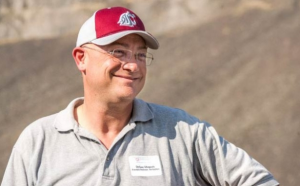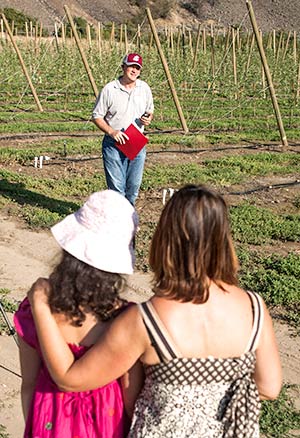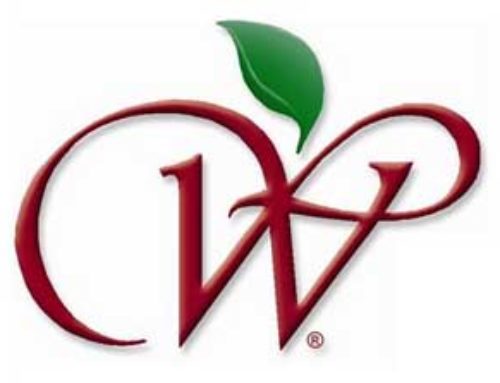
Stefano Musacchi during the Washington State University field day and workshops at Sunrise Research Orchard and labs south of Wenatchee, Washington, on August 7, 2013. TJ Mullinax/Good Fruit Grower
Stefano Musacchi, 49, grew up on an orchard in Ferrara, Italy, where his father was orchard director. Musacchi evidently inherited an interest in both fruit growing and breeding from his father, who was a private breeder focusing on strawberries.
Before moving to Washington State this summer, Musacchi was assistant professor at the University of Bologna, where he earned his doctorate in pomology in 1996.
Besides working on apple, pear, and cherry horticulture, he has been involved in breeding pear rootstocks and cultivars. Much of his field work has been done in Ferrara, which is within 30 miles of the university. The region has 32,000 acres of pears and 15,000 acres of apples. It has a maritime climate with 24 to 26 inches of rainfall annually. The climate is suitable for growing many types of fruits, including cherries, stone fruits, and kiwi, and trees tend to grow vigorously.

Stefano Musacchi’s wife Debora Bassi and daughter Lucia Musacchi, 9, listen to his first presentation as a WSU faculty member during the field day. TJ Mullinax/Good Fruit Grower
Strict limits on pesticide residues imposed by European supermarkets have made production more challenging for growers in the region, who spray 35 to 40 times per season, partly because of high disease pressure. Large supermarkets in Germany, for example, allow residues of no more than three materials.
This, together with the increasing cost of labor, is squeezing Italian growers’ profits, Musacchi said. Most are making enough money to cover production costs, but aren’t able to set aside enough profits to update or replant their orchards.
He estimated production costs at 21,000 to 22,000 euros per hectare (about $11,000 per acre) and said the typical profit margin might be 3,000 to 4,000 euros ($1,600 to $2,200) per acre.
“In the last four years, the pear grower in Italy did not make a lot of money,” he said. “We can maximize yield, but we have always to find a compromise. If you maximize yield and reduce the quality, it’s not a good deal.”
Musacchi fills a new endowed pomology position at WSU, which was created with funding from a special grower assessment for research. Strong grower support was important in his decision to move to Washington with his wife, Debora Bassi, and daughter, Lucia.
“Personally, I think it’s probably one of the best places to do research around the world because you have the industry behind you,” he said.
Dr. Sara Serra, his research associate in Italy, also moved to Washington with him. She has a background in biotechnology, which is helpful to him because he is convinced that physiological and horticultural problems can be addressed through biotechnology.






Leave A Comment